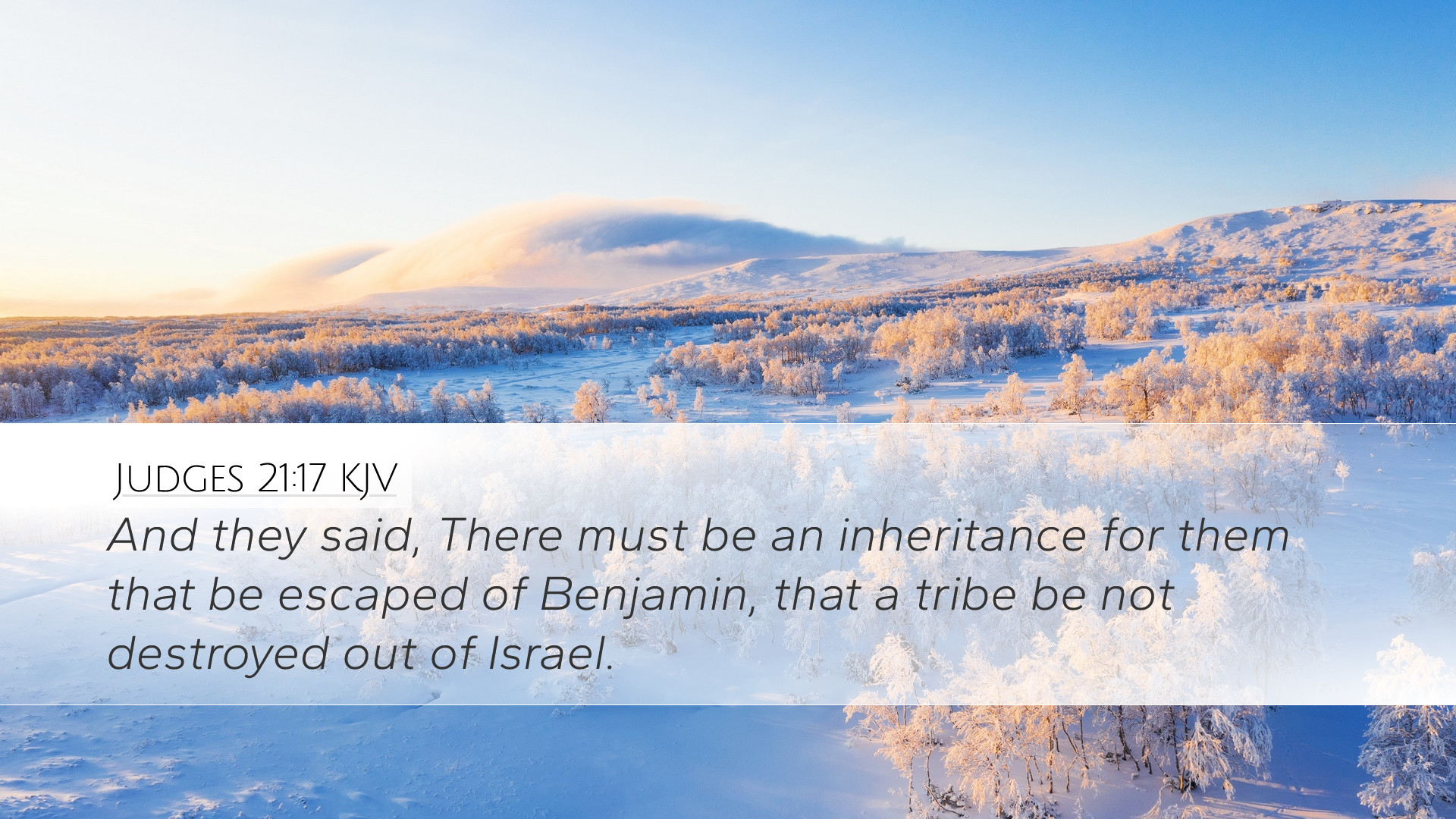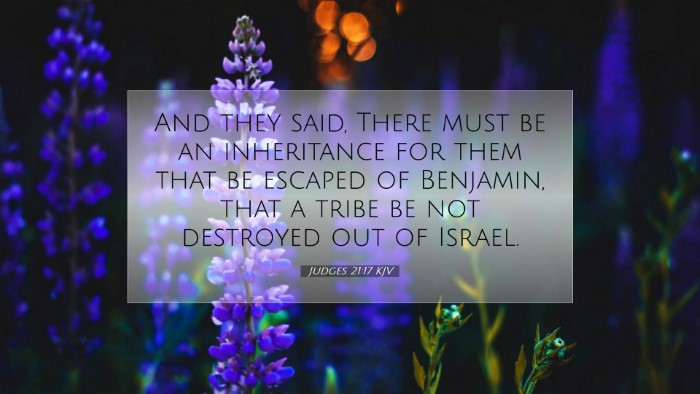Bible Commentary on Judges 21:17
Judges 21:17 states: "And they said, There must be an inheritance for them that be
of the family of Benjamin, that a tribe be not destroyed out of Israel."
This verse encapsulates the deep concern for the continuity of the tribe of Benjamin after
a devastating civil strife, reflecting on themes of justice, restoration, and divine
providence.
Contextual Analysis
The book of Judges narrates a tumultuous period in Israel's history marked by
cycles of sin, oppression, repentance, and deliverance. Judges 21 occurs after a
terrible civil war in which the tribe of Benjamin almost faced extinction due to their
involvement in the grievous sin of Gibeah (Judges 19-20). The Israelite tribes,
after deliberating, recognized the need to preserve the Benjamite lineage and to
ensure that this tribe, integral to the nation's identity, would not vanish entirely.
The Importance of Inheritance in Israel
The idea of inheritance is foundational in the socio-cultural context of ancient Israel.
Inheritance involved both land and the perpetuation of family lineage, significantly echoing
divine promises made to the patriarchs. According to Matthew Henry, the desire
articulated in Judges 21:17 reflects not only familial loyalty but the intrinsic value of
every tribe's existence as part of the national identity of Israel.
Albert Barnes further emphasizes the grave consequences of tribal extinction, highlighting
that the loss of one tribe could lead to diminishing the whole nation’s collective identity
and worship of Yahweh. Such a loss would undermine the promises linked to the land and
God's covenant with Israel.
Theological Implications
The preservation of the tribe of Benjamin suggests profound theological implications. First,
it raises questions about the fidelity of God’s promises. God had sworn to uphold Israel,
and thus, this emergency prompted a divine response that led to the arrangement of new
marriages to restore the tribe. Adam Clarke notes that this incident is a striking
demonstration of God's sovereignty over the affairs of men, orchestrating events to uphold
his covenant.
Additionally, the verse points towards the overarching theme of redemption throughout
Scripture. The tribes' concern for Benjamin can be seen parallel to God's redemptive
concern for His people as a whole, leading towards the ultimate resolution found in
Jesus Christ, who restores and redeems those who are lost.
Practical Applications for Today
For pastors, students, and theologians, Judges 21:17 serves not only as a historical
account but as an invitation to contemplate God's workings in communities and the
significance of each member within the body of Christ.
-
Community Responsibility: Just as the tribes of Israel rallied to
ensure the survival of Benjamin, modern congregations are called to support and nourish
one another, recognizing the vital role of each member.
-
Understanding Divine Providence: The questions surrounding
God's purposes in times of crisis encourage believers to seek divine guidance and
comfort amid uncertainties, reaffirming faith in God's promises.
-
Restoration and Redemption: This narrative designates the
importance of grace in human relationships and the communal effort required to restore
those who may have been hurt or marginalized within the church.
Conclusion
In summary, Judges 21:17 is a concise yet profound reflection on community, inheritance,
and divine provision. Through its historical context and theological depth, it speaks powerfully
to the current church, inviting both congregations and individual believers to recognize the
importance of each member's inheritance in Christ and the collective responsibility to ensure
that no one among them is lost. The lessons derived from this scripture echo the call to cultivate
unity, grace, and a commitment to restoration, ultimately manifesting God's glory in the world.


